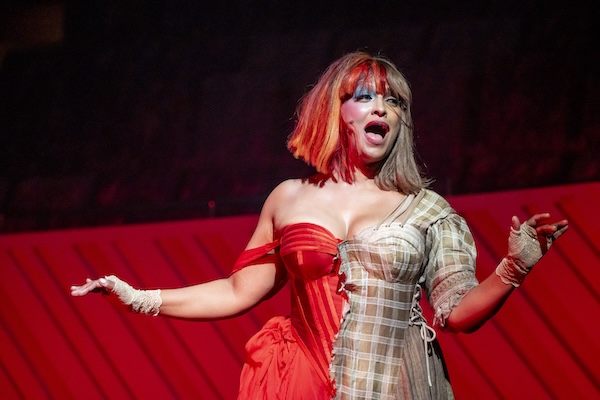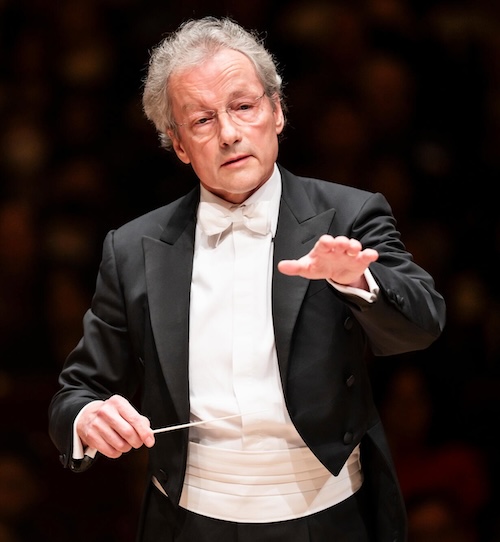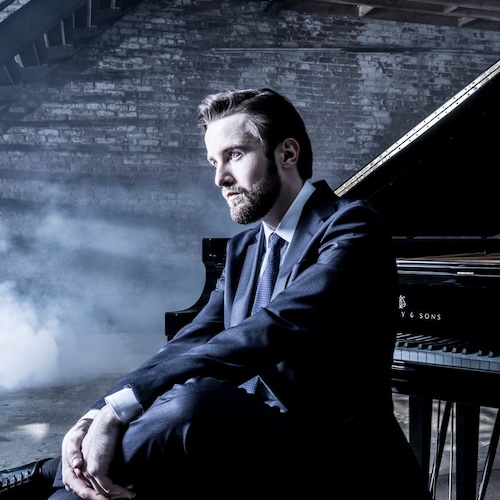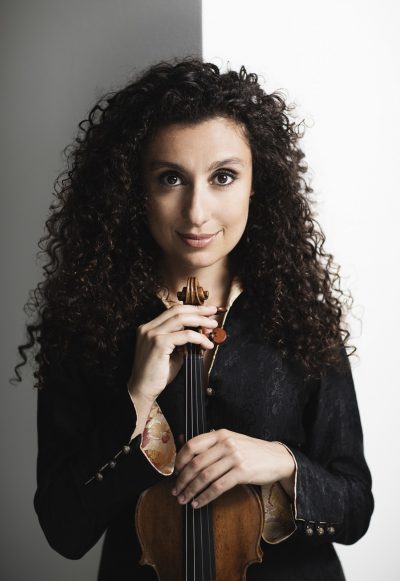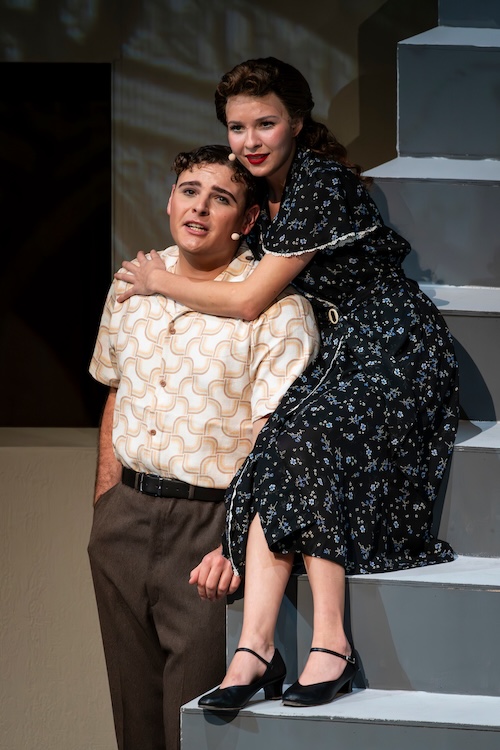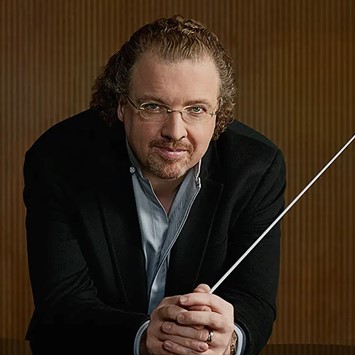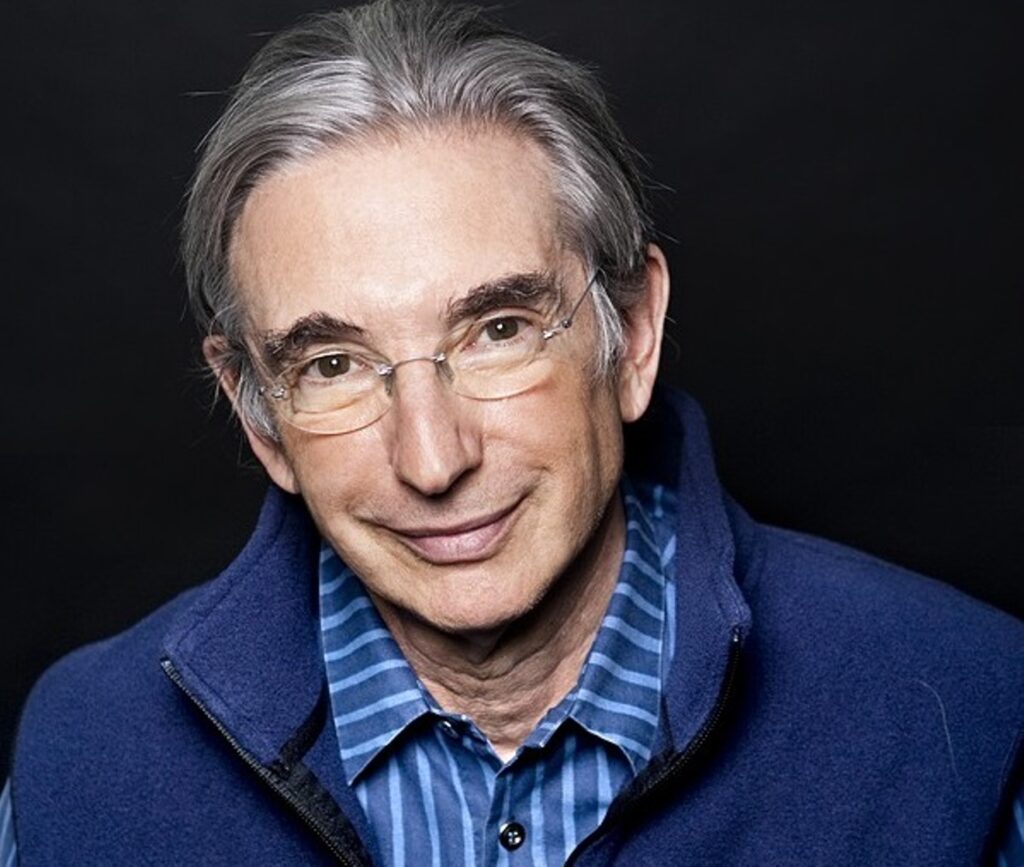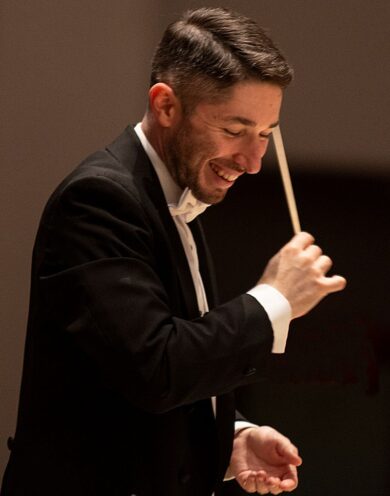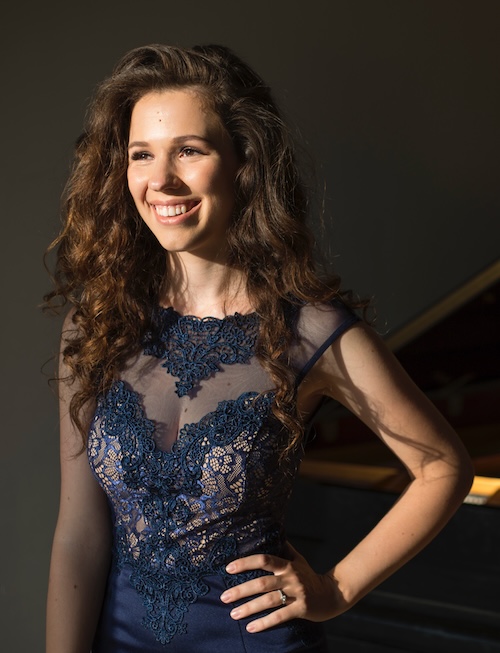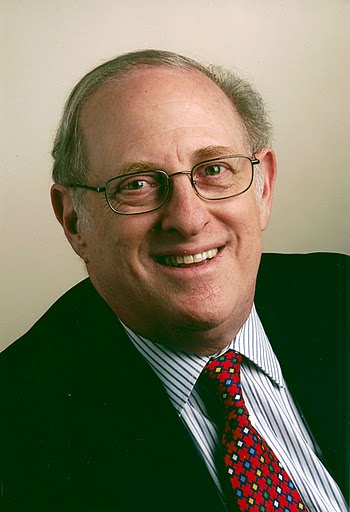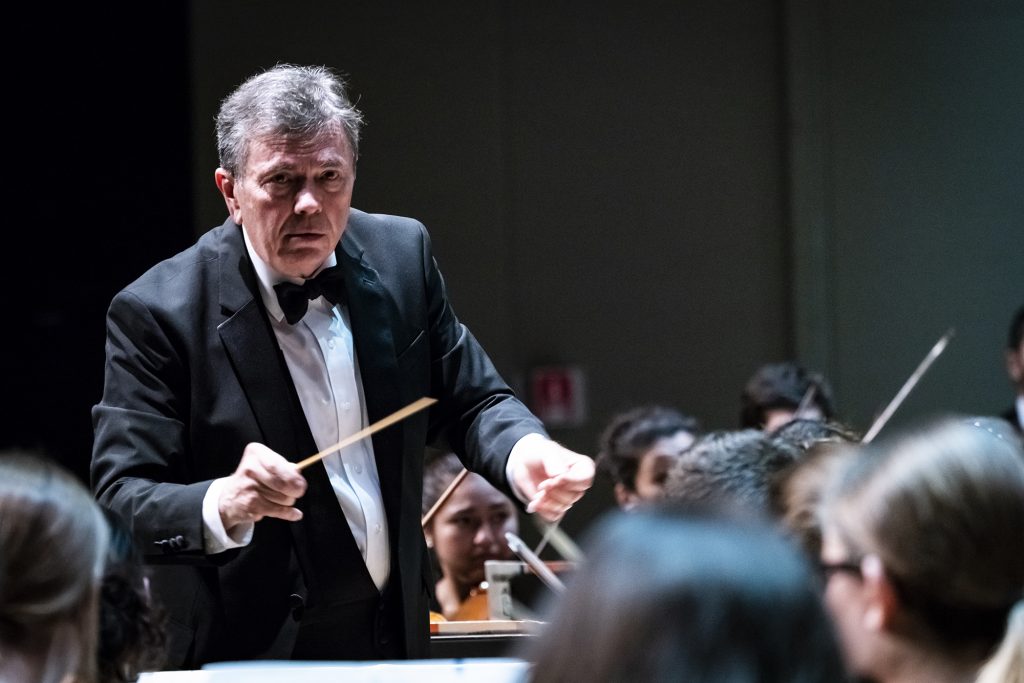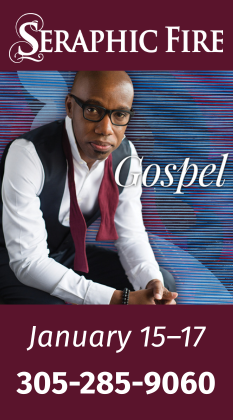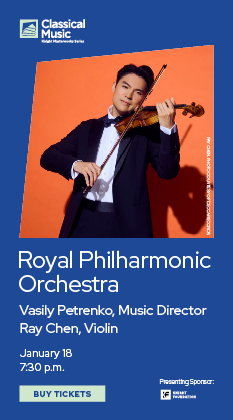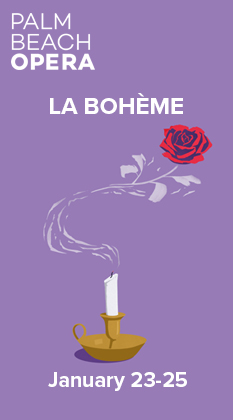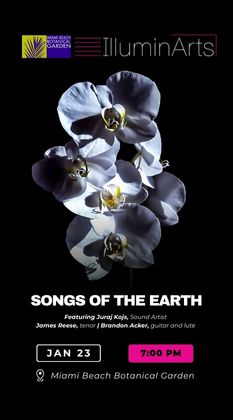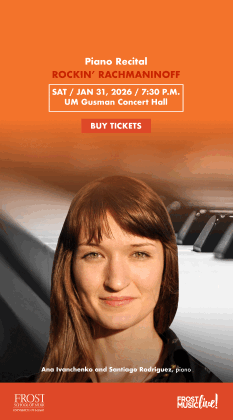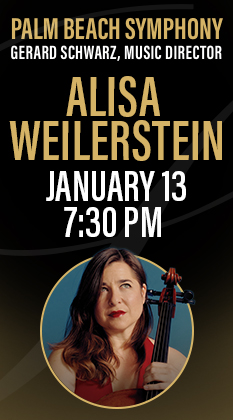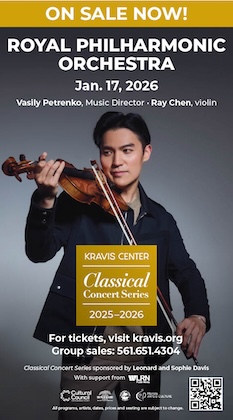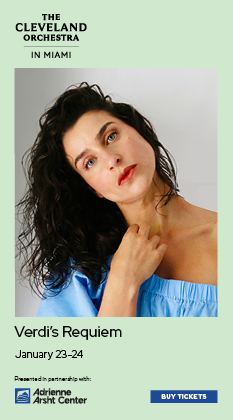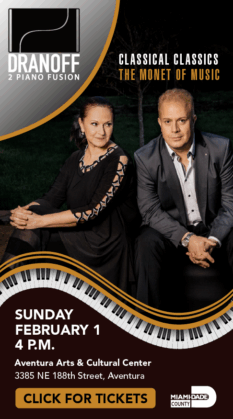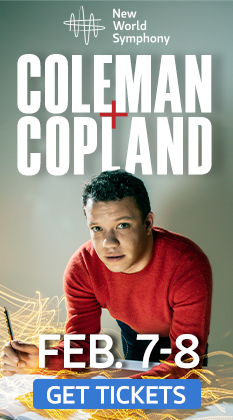Top Ten Performances of 2024
1. Ullmann: The Kaiser of Atlantis & Weill: The Seven Deadly Sins. Stéphane Denève/New World Symphony
The unlikely operatic event of the year in Miami was a double-bill of two works from Holocaust-era Europe, which proved riveting with excellent vocalism and imaginative presentation. Viktor Ullmann’s The Kaiser of Atlantis, written at the Terezin concentration camp in 1942, is a moving yet dramatically devastating parable about a dictator who declares endless war without survivors, only to be felled by death itself. Kurt Weill and Berthold Brecht’s 1933 music drama The Seven Deadly Sins, a tale of sexual exploitation, is infused with the spirit of Weimar-era cabaret. Danielle de Niese was a stunning protagonist and Stéphane Denève drew out every nuance and subtlety of both masterful and rewarding scores.
2. Mahler: Symphony No. 9. Franz Welser-Möst/Vienna Philharmonic
Among the most eagerly anticipated concerts of the season, the performance of Mahler’s Symphony No. 9, by the Vienna Philharmonic, led by Franz Welser-Möst at the Kravis Center in West Palm Beach exceeded all expectations. The orchestra that gave the symphony’s world premiere in 1912 produced a stirring, passionate performance that brought to life Mahler’s vast, intimate, nightmarish and ecstatic musical world. From sweeping passages in the upper reaches of the violins to ominous grumbles in muted trumpets and horns, this was one of the most gripping South Florida concerts in years. (DF)
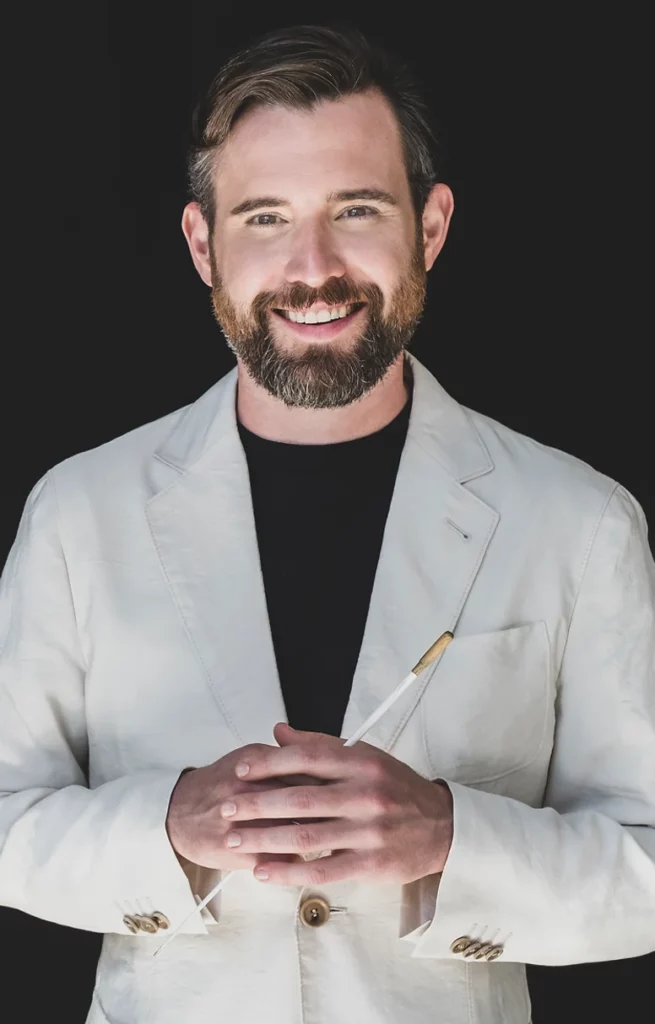
File Photo
3. Haydn: Lord Nelson Mass. Patrick Quigley/Seraphic Fire
Haydn’s Missa in augustiis, known as the Lord Nelson Mass, is the greatest of Haydn’s works in this genre. Recreating a historic concert to conclude the annual Enlightenment Festival, Patrick Quigley drew full-throated vocalism from the outstanding chamber choir. He emphasized distinct instrumental lines and widely terraced choral dynamics. Quigley’s vivid sense of the work’s shifting light and dark colors could scarcely be bettered. Soprano Nola Richardson’s creamy timbre and agility was a standout in “Lines” from the Battle of the Nile (describing one of Nelson’s famous military victories).
4. Mozart: Piano Concerto No. 9, Daniil Trifonov/Rotterdam Philharmonic
Many pianists steer clear of Mozart’s concertos in favor of flashier Romantic pieces. But at a concert at the Kravis Center, the superstar pianist Daniil Trifonov showed what a true virtuoso can do with 18th century master’s works. His performance of Mozart’s Piano Concerto No. 9 was buoyant, joyous, full of Romantic longing in the slow movement and quietly, intensely energetic in the concluding Rondo. (DF)
5. Venice Baroque Orchestra. RK Cultural Productions
The Venice Baroque Orchestra is one of the world’s best period-instrument orchestras. Under conductor-harpsichordist Andrea Marcon, the group combines a stylish affinity for Baroque repertoire with brilliant instrumental execution, secure intonation and unity of ensemble. In a program devoted to “A Venetian Duel of Bows” violinist Chouchan Siranossian proved dazzling in concertos by Vivaldi, Veracini, Tartini and Locatelli. In encores of movements from Vivaldi’s The Four Seasons, Siranossian and colleagues made this familiar repertoire staple sound fresh and invigorating, as if the players were rendering it for the first time.
6. Weill: Street Scene. Frost Opera Theater
Kurt Weill’s Street Scene is American operatic verismo. The tale of poverty, adultery, murder and thwarted love abounds with Weill’s skill and versatility as a tunesmith. With a greatly talented cast of young singers in both principal and secondary roles, inventive staging by Jeffrey Marc Buchman and eye catching choreography by Rosa Mercedes, this was one of the University of Miami Frost Opera Theater’s finest presentations one that could hold its own with the best professional productions.
7. Roussel, Ravel and Schmitt. Stéphane Denève/New World Symphony with Isabel Leonard
Stéphane Denève, NWS artistic director, was at his absolute best in a concert of Gallic rarities written between 1902 and 1913. Isabel Leonard’s alluring mezzo was a perfect match for the exoticism of Shéherazade, Ravel’s exotic dream of a magical Orient. Albert Roussel’s ballet score The Spider’s Feast sounded cinematic in scope and luminous orchestration. La Tragedie de Salome by Florent Schmitt suggested a melding of Richard Strauss and Ravel. Commanding vibrant ensemble and gleaming coloration, the performances illustrated the chemistry between conductor and orchestra at its peak.
8. Schoenberg, Beethoven and Schumann. Michael Tilson Thomas/New World Symphony with Emanuel Ax
Michael Tilson Thomas, the New World’s artistic director laureate returned to the orchestra in top form, despite his ongoing battle with brain cancer. Conducting with considerable vigor, he vividly delineated the hundred-year path of German music from Beethoven to Schoenberg, with music-making that was as supple and illuminating than ever. Schoenberg’s Five Pieces for Orchestra resounded in lucid, intense and articulate fashion. Emanuel Ax gave equal depth to the titanic and lyrical sides of Beethoven’s musical persona in a deeply probing reading of the Piano Concerto No. 3. Schumann’s Symphony No. 1 (“Spring”) emerged with plenty of spring in the step plus an aura of wit and whimsy, representing MTT’s mature thoughts on one of his favorite scores.
9. Mozart: Mass in C minor. Brett Karlin/Master Chorale of South Florida
Mozart’s Mass in C minor was never completed; yet, lasting 50 minutes, it is hardly a torso. The rarely heard opus received an eloquent, stirring performance by the Master Chorale of South Florida. Karlin inspired the best from the 120-voice chorus and instrumental forces with, thunderous climaxes matched by singing of great fervor. Among the excellent soloists, soprano Robin Johansen was first among equals, blending winningly with mezzo Clara Osowski and tenor Steven Soph. Johansen also brilliantly scaled the roulades of Mozart’s Exultate Jubilate.
10. Alexandra Segal. Miami International Piano Festival
The recital by Israeli-Ukrainian pianist Alexandra Segal was flawlessly executed in a challenging program. Brahms’ infrequently programmed Sonata No. 3 is a minefield for any artist who dares tackle it, and Segal conquered its technical demands with impressive assurance. Combining sensitivity and steely-fingered dazzle, her reading of Schumann’s Symphonic Etudes was marked by subtle gradations of speed and pulse. In a Scarlatti encore, Segal spun a lyrical line with restrained beauty.
Honorable Mentions
Elaine Rinaldi crafted an engaging program of Benjamin Britten works from his early and middle periods with Orchestra Miami. The austere Canticle II: Abraham and Isaac featured a heroic performance from tenor Andres Lasaga who was called in at, literally, an hour’s notice to replace an ailing colleague. Tenor Gerardo José Ortega mastered the heroic and lyrical impulses of the Serenade for tenor, horn and strings, with Stanley Spinola providing impressive horn sonority.
Dvořák’s Cello Concerto in B minor is the most frequently played score for the instrument but soloist Julian Schwarz and his conductor father Gerard Schwarz brought a sense of freshness and discovery to every page in an exciting and impeccably played reading. The Palm Beach Symphony proved fully equal to the sonic panorama of the Mussorgsky-Ravel Pictures at an Exhibition, a demonstration of the solid and unified ensemble Gerard Schwarz has built.
Surreal sets and excellent singing gave Palm Beach Opera’s production of Offenbach’s The Tales of Hoffmann the menacing allure of a high-quality nightmare. Tenor Kang Wang served up an affecting performance as the poet Hoffmann, using his powerful upper register to express Hoffmann’s desperation as his search for love produced a string of catastrophes. The soprano Kathryn Lewek performed all three female roles, handling the part of the singing doll Olympia with dazzling virtuosity and style. (DF)
Patrick Quigley’s Scarlatti program and James Bass’s “Mid- Century Modern” and “Contemporary Jewish Voices” programs with Seraphic Fire; Elena Sharkova’s survey of female composers and Ruben Valenzuela revival of Johann Schein’s Fountains of Israel, also with Seraphic Fire;
Douglas Boyd’s Beethoven Ninth Symphony with the New World Symphony; Michael Tilson Thomas’ From the Diary of Anne Frank with Stéphane Denève and narrator Daisy Ridley; Xian Zhang’s The Planets, Shunske Sato’s Bach-Mozart program at the New World Symphony.
The Master Chorale of South Florida led by Brett Karlin delivered a dramatic and exciting performance of Mendelssohn’s Elijah. (DF)
Gerard Schwarz’s Rachmaninoff Symphonic Dances and Brahms Symphony No; 2 with the Frost Symphony Orchestra; Emanuel Ax’s Beethoven-Schoenberg recital for Friends of Chamber Music; Avery Gagliano’s recital and Concerto Night at the Miami International Piano Festival; the Chipak-Kushnir Duo’s riveting traversal of Liszt’s 2 piano transcription of Beethoven’s Ninth Symphony for Dranoff 2Piano Fusion
Dishonorable Mentions
Lang Lang’s messy and incoherent Schumann Kreisleriana; Emily Magee’s overparted, small-scaled vocalism in Strauss’ Four Last Songs with the New World Symphony.
Best Contemporary Works
John Corigliano’s haunting and brilliant Triathlon, a saxophone concerto (for three varieties of the instrument), played with virtuosity and panache by Timothy McAllister and the Frost Symphony under Schwarz.
The world premiere of Guillaume Connesson’s Les trois saisons (The three seasons), a high-voltage orchestral showpiece that glows with impressionistic glints and a color palette worthy of Ravel. Denève, long a champion of the composer, led the New World fellows in a performance replete with sonic glamour.
Best Revivals
Charles Tomlinson Griffes’ The White Peacock, a sensuous orchestral tone portrait, and David Diamond’s vibrantly bustling Symphony No. 4 skillfully led by Gerard Schwartz with the Frost Symphony Orchestra.
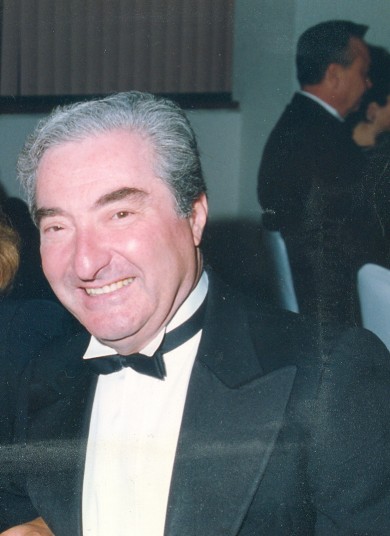
Raffaele Cardone.
A Major Loss
Raffaele Cardone, founder and artistic director of Miami Lyric Opera, announced in April that he is closing the company down after 22 seasons. The rising expense of producing opera in South Florida had taken its toll on the small company’s finances.
Cardone had produced opera in traditional productions that respected the composers’ and librettists’ intentions, bereft of trendy gimmicks or updates. After moving from a theater in Miami Beach with a small stage and no orchestra pit to the Moss Cultural Arts Center in Cutler Bay, production values rose impressively. Most importantly, Cardone’s productions regularly spotlighted outstanding young singers. Tenor Mario Chang and baritone Nelson Martinez went on to sing at the Met and many others have sung at major European and South American houses.
Musical standards were consistently high. While repertoire was mostly standard, such rarities as Arrieta’s Marina, Mascagni’s L’Amico Fritz and the three operas of Puccini’s Il Trittico were also presented. Cardone’s artistic integrity and dedication to the art form will be greatly missed.
Death of A Musical Connoisseur and Major Artistic Force
Julian Kreeger died in November at age 84. The Miami attorney had a nearly encyclopedic knowledge of the orchestral and chamber music repertoire. For nearly four decades, he helmed Friends of Chamber Music of Miami, presenting top-tier chamber ensembles and solo recitals with a strong emphasis on pianists and keyboard literature. He also presented distinguished collaborative programming with the FIU Music Festival, the former Festival Miami at the UM Frost School of Music and the Frost Chopin Festival.
Kreeger played a key role in artist and repertoire selection as a consultant to the defunct Florida Philharmonic Orchestra. Co-founding Audiofon Records with engineer Peter McGrath, Kreeger recorded artists who were ignored by larger companies or had made few recordings. Hopefully, Friends of Chamber Music will continue for seasons to come but Kreeger’s absence will leave a void in South Florida’s cultural fabric.
Distinguished Achievement Award
Since coming to South Florida in 2019, conductor Gerard Schwarz has been a transformational presence as conductor of the University of Miami’s Frost Symphony Orchestra and music director of the Palm Beach Symphony. The UM student ensemble had already made great strides under the direction of his predecessor, the late Thomas Sleeper. From Schwarz’s very first concert with the orchestra, the already strong level of playing has risen exponentially. Recent performances of scores by Rachmaninoff, Brahms and Dvořák were comparable to the work of the New World Symphony fellows in terms of precision, ensemble balance and musical insight.
With the Palm Beach Symphony, Schwarz took over a minor ensemble that rarely played in major concert venues and raised its music making to that of a first-class regional orchestra. Now playing all programs at the Kravis Center with major league soloists, the orchestra sounded terrific in the Mussorgsky-Ravel Pictures at an Exhibition at the season-opening concert.
Schwarz is a true orchestra builder and he has continued to be a fervent advocate for American composers and new music. In just five years, Gerard Schwarz’s contribution to South Florida’s musical landscape has been crucial and decisive.
Posted in Uncategorized
Leave a Comment
Mon Dec 23, 2024
at 1:50 pm
No Comments
